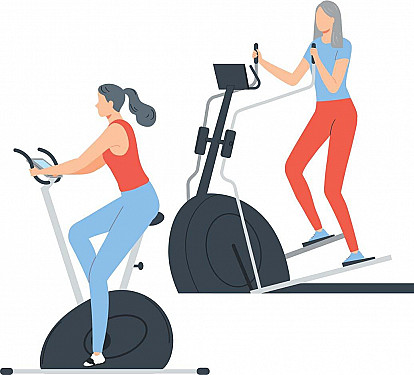Hearts and heat: Take common-sense steps to stay safe this summer
|
Images: Thinkstock |
If you have a heart condition, take a few extra precautions and listen to your body's warning signals.
When the mercury rises, the heat starts to strain the limits of your body's cooling system. Its driving engine is your heart, which takes on a heavier load in hot weather to keep the body's temperature within norms.
In otherwise fit, active men, handling the heat requires no more than knowing your limits and drinking enough fluids. But what if you've got a heart condition?
Men with cardiac concerns are at a somewhat higher risk of heat exhaustion or heat stroke, depending on the severity of the heart condition, your overall physical conditioning, and what medications you take.
"You are going to be more sensitive to the heat," says Dr. Joanne Foody, director of cardiovascular wellness services at Harvard-affiliated Brigham and Women's Hospital. "You may just need to limit your activity to a greater degree."
If you are concerned about heat and your heart, discuss it with your doctor, Dr. Foody advises. "This is particularly important when you go on vacation and try to do activities you are not used to doing in a warm climate."
Your inner air conditioner
When body temperature rises above the norm, arteries open up (dilate) to allow the heart to pump blood to outlying muscles and the skin in order to shed heat. Sweating allows moisture to evaporate from and cool the skin.
Anything that compromises the cardiovascular system can throw off your inner air conditioner. "Heat, particularly exercising in the heat, takes more energy and puts more strain on the heart," Dr. Foody says. "To maintain optimal body temperature, the heart needs to work harder."
Heat stress can cause extra problems if the cardiovascular system is not functioning at peak efficiency. For example, a man with narrowed arteries to the heart might be more predisposed to chest pain in the heat.
Medication effects
Cardiac medications can change the body's response to heat. Here is what you should know:
-
Beta blockers slow heart rate. This could make the cardiovascular system less able to compensate for higher temperatures.
-
Diuretics make the body excrete extra water and reduce blood pressure. Taking diuretics in the heat could tip you toward dehydration.
-
Nitroglycerine dilates (opens) the blood vessels. Getting overheated while on this medication could lead to lightheadedness.
Listen to your body's warning signals. If you start to feel unwell, get to a cool place and drink fluids. Always carry a cell phone so you can get help if you need it. Trouble signs include muscle cramps, fatigue, weakness, confusion, lightheadedness, nausea, labored breathing, chest discomfort, and a rapid or erratic pulse.
What to do
For anyone, common sense should prevail in the heat. Here are some simple precautions:
-
Whatever is normal activity for you in cooler weather, take it down a couple of notches in the heat.
-
Schedule work, recreation, and other outside activities for the morning or early evening if possible.
-
Drink extra fluids before you go outside, not just as you get thirsty. Plain water is fine for normal activities; you don't need special sports drinks or fitness waters.
Men with heart conditions should take a few extra precautions:
-
Know whether medications you take could lower your tolerance to heat.
-
If you have heart failure, ask your doctor how to manage fluids. Drinking too much can trigger worrisome symptoms, like shortness of breath.
-
Men with cardiovascular disease may also have decreased kidney function. If so, your body will have more trouble regulating fluids. Drinking excessive amounts of water could dilute your sodium levels.
Heat related illness: What to do |
||
|
Problem |
Symptoms |
What to do |
|
Dehydration |
Dry mouth, fatigue, headache; reduced urination or dark yellow urine. |
Drink fluids before activity and replenish often. |
|
Heat |
Painful muscle cramp caused by dehydration. |
Rest, drink fluids, stretch gently, wait. |
|
Heat exhaustion |
Flushed, clammy skin; heavy sweating; weakness, lethargy, loss of concentration, headache, and nausea |
Get to a cool place, loosen clothing, drink cool fluids, take a cool shower, rest. |
|
Heat |
Hot, flushed, dry skin; decreased sweating; rapid pulse, shortness of breath, confusion, delirium, seizures. |
Call 911 and get the victim out of the heat if possible. |
Disclaimer:
As a service to our readers, Harvard Health Publishing provides access to our library of archived content. Please note the date of last review or update on all articles.
No content on this site, regardless of date, should ever be used as a substitute for direct medical advice from your doctor or other qualified clinician.
















